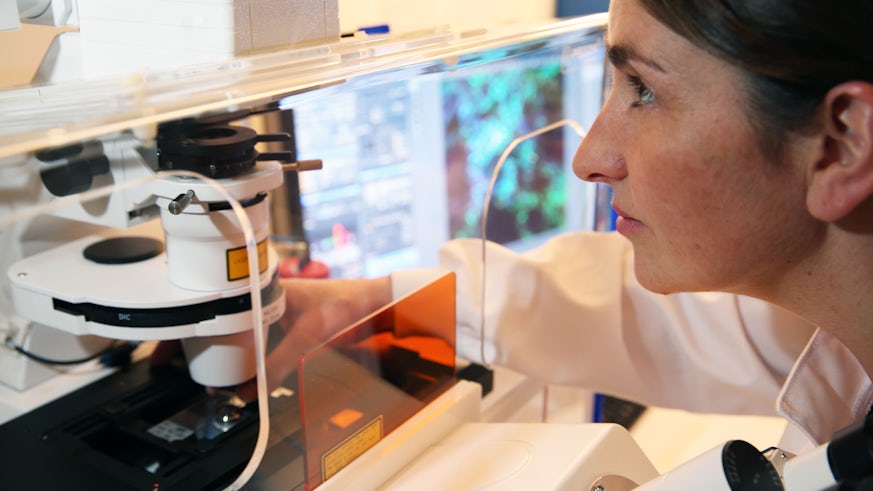Pancreatic cancer cells outcompeted by healthy neighbours
3 August 2021

Only 7% of people with pancreatic cancer survive more than five years. New research from Cardiff University is helping to expand the knowledge of this form of cancer, with the hopes of informing developments of new treatments.
Pancreatic cancer often develops without symptoms, making it very difficult to diagnose. Researchers at Cardiff University’s European Cancer Stem Cell Research Institute hope that by understanding the biology of how this disease starts, this will bring about new and improved strategies to detect cancer in the early stages.
By using models of pancreatic cancer, the research focused on the very first stages of the disease, when a small number of cells gain a mutation in a gene called KRAS.
Dr Catherine Hogan, Cardiff University, said: “The most common form of pancreatic cancer is pancreatic ductal adenocarcinoma. Around 95% of all pancreatic ductal adenocarcinoma tumours carry KRAS mutations.
“Using mouse models of pancreatic cancer, we set out to ask whether cells carrying KRAS mutations are detected in healthy tissues and compete with normal neighbours to grow to form tumours .”
The research aimed to understand whether KRAS-mutated cells evade the normal protective mechanisms within the body, which remove cells with dangerous mutations from healthy tissues.
“We used genetic techniques to express the mutated form of the KRAS gene, KrasG12D, in cells in different parts of the pancreas and attached a fluorescent label to the mutated cells to track the cells over time.
“We found that the adult pancreatic tissues actively removed the KRAS mutated cells to prevent cancer development. However, we also found that if the cells are missing a cell-to-cell communication signal, called EphA2, then the KRAS mutated cells are not eliminated and can go on to grow and develop into early tumours.
“This study illustrates that KRAS mutated cells compete for survival in tissues, suggesting that mutant cells must be able to override competitive signals from normal cells in order to avoid detection and removal. How these mutant cells acquire this advantage remains unclear and is the current focus of our lab.
“Understanding how normal cells outcompete mutant cells may provide new ways to combat cancer. This new knowledge may lead to the development of new and improved early cancer detection strategies,” added Dr Hogan.